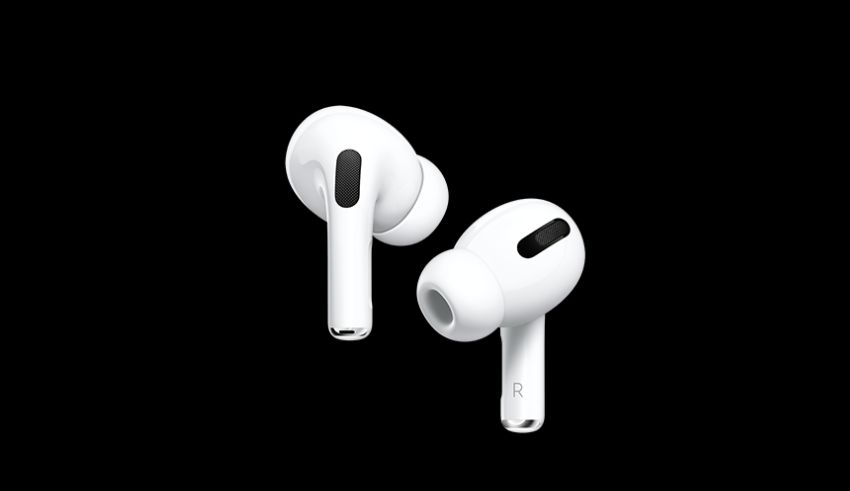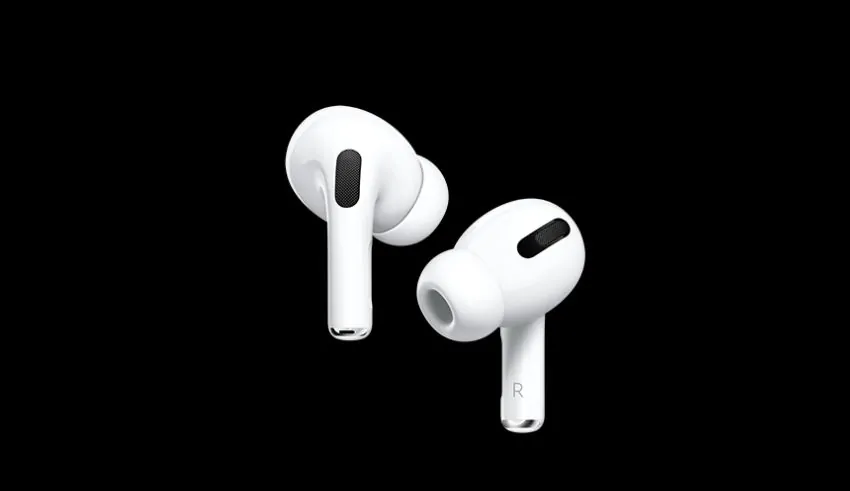

(C) Apple Support
Launched in October 2019 and sold until September 2022, Apple learns it has gotten caught in a class action lawsuit LaBella et al v. over major audio problems in its first-generation AirPods Pro. Apple argues that the tech giant sold defective earbuds under marketing claims of “superior sound quality” and advanced noise-canceling technology, therefore indicating knowledge of flaws. The court case raises questions about customer confidence and the huge obligation big companies have to live up to their claims.
Shortly after the first-generation AirPods Pro were on sale, users began complaining about ongoing audio problems like cracking, static sounds, popping, and rattling. These issues especially seriously disrupted phoning, walking, and jogging. Users also noted that the noise-canceling ability fell short of expectations. That is the primary selling feature. Not so decreasing ambient noise, the earbuds diminished bass quality but amplified external noises such street traffic or airline noise.
The case underlines the general frequency of these allegations, which originally surfaced on social media and internet forums. Apple continued to sell the iPhone, but without disclosing any potential problems, it left naive buyers to discover them later on.
The action mostly revolves around claims that Apple broke rules by offering the AirPods Pro as dependable, consistent earphones via deceptive advertising, thereby violating standards. Emphasizing the device’s strong noise-canceling capabilities, the company’s marketing campaigns centered on topics like “pure, incredibly clear sound” and “superior sound quality.”
The action argues that these assurances were false since what plaintiffs describe as a “Audio Defect” led to the products falling short of expectations. The case argues buyers of the AirPods Pro would not have paid a premium price even knowing about the defects. On the other hand, should Apple have disclosed the flaws, they would have considered purchasing discounted earphones.
“The functionality of audio components is a material and essential feature of any headphones,” the lawsuit, running 51 pages, argues. “High-end, expensive headphones like Apple’s AirPods Pro Gen 1, which Apple promoted as having noise-canceling traits and superior sound between other headphones, would have consistently functioning, high-quality audio.”
Apart from damages and remedies, the plaintiffs also seek free replacements for any defective AirPods Pro units. Millions of AirPods Pro owners all throughout the nation might perhaps benefit from the settlement should the court decide the complaint to be a class action and the plaintiffs prevail. On the other hand, compensation would most likely take the form of Apple gift cards redeemable for meager rewards or following purchases.
Apple might suffer considerably from this situation, particularly should it be found guilty for deceiving consumers and ignoring known problems.
Apple first addressed the claims with emergency software modifications, but the problems persisted pointing to hardware-related basic explanations. Realizing that “a small percentage” of devices manufactured before to October 2020 could have issues including diminished noise-canceling ability or crackling, static sounds, the company launched the AirPods Pro Service Program for Sound Issues in October 2020.
With this offer, affected users could get free of cost AirPods Pro repairs or replacements. However, the case argues Apple did not promote the device enough, therefore depriving many buyers of information of its availability. Furthermore, even consumers who received replacements claimed running across the same issues, implying that every production batch included structural rather than restricted defects.
Responding to ongoing inquiries, Apple discreetly extended the servicing program to cover affected Macs for up to three years following the first retail purchase. While this repair provided some comfort, it ignored the basic hardware issues many customers were running against.
Since the first-generation AirPods Pro was introduced, Apple has created several more modern models claiming to solve the audio problems. Starting in 2022, the second-generation AirPods Pro arrived followed by a USB-C model in 2023 and a 2024 edition integrating inventive hearing health technologies. None of these latter models have drawn the same complaints about static and crackling noises, suggesting Apple learned from the shortcomings of its early Pro headphones.
Apple has not been without criticism over hardware defects prior to the AirPods Pro lawsuit. From the well-known “butterfly keyboard” issues with MacBooks to the iPhone 14 Plus camera glitch that prevented previews in the Camera app, the company has evolved a range of support programs over the years to manage difficulties with its devices.
Although these services give some degree of responsibility, some argue they typically come too late to satisfy customers who feel Apple’s marketing misled them. The AirPods Pro case emphasizes how different Apple’s amazing quality reputation is from the reality of hardware issues often erasing that promise.
As the litigation progresses, the plaintiffs want Apple responsible for the AirPods Pro’s audio problems. Their demands for transparency, fair compensation, and free alternatives met the needs of many customers disappointed by the way the business ran affairs.
This event especially reminds us strongly of the significance of maintaining product claims, especially for luxury goods. Apple’s lawsuit asks for its commitment to consumer pleasure and corporate responsibility as it has established its name on innovation and quality.
Whether the plaintiffs win in court remains to be seen, but the case has already sparked a more broad general discussion on consumer rights, product openness, and the requirement of digital companies giving long-term dependability first priority over fleeting earnings. Justice is expected to be done for owners of AirPods Pro and other affected consumers so ensuring a fair result for all those involved.
Turkish music lovers and the whole entertainment world on Sunday night were put in shock by the unexpected passing of…
The Senior Asian Wrestling Championship 2025 held in Amman closed with an exhilarating finale for India. The freestyle wrestling contingent…
Having been aired in Japan, the second season of Shangri-La Frontier has just been completed, and people are already hashtagging…
OpenAI updated ChatGPT-4o to include its best text-to-image tools so free users can generate Studio Ghibli artwork by giving basic…
The stepping down of Piyush Gupta from the post of CEO of DBS Bank came after 15 years of leading…
The Delhi Directorate of Education releases 2025-26 marks for year-end tests in school levels 6 through 11. Online test data…
This website uses cookies.
Read More